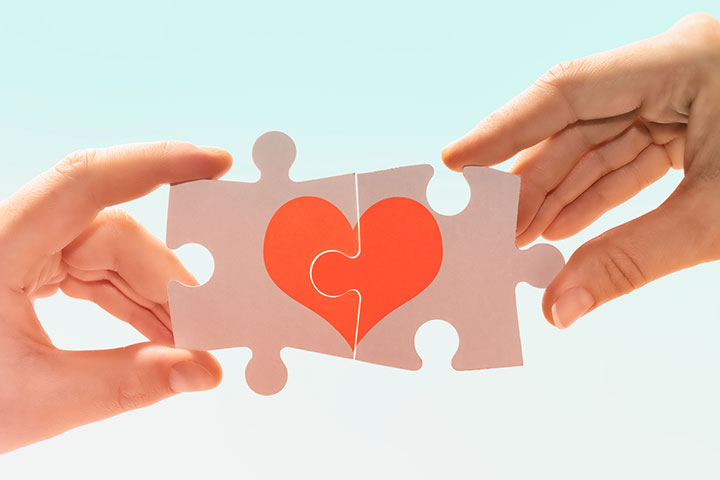Love is a complex and multifaceted emotion that encompasses a broad range of feelings, attitudes, and behaviors. While it can be challenging to define love comprehensively due to its subjective nature and varied expressions, it is often characterized by the following elements:
- Affection: Love involves feelings of warmth, fondness, and deep affection towards another person. It encompasses caring for someone deeply and wanting their well-being and happiness.
- Connection: Love fosters a strong emotional connection and bond between individuals. It involves feeling deeply connected to another person on a profound level, both emotionally and spiritually.
- Intimacy: Love often involves a sense of intimacy, both emotional and physical. It entails sharing personal thoughts, feelings, and experiences with another person, as well as experiencing physical closeness and affection.
- Respect: Love involves showing respect and appreciation for the other person as an individual. It entails valuing their thoughts, feelings, and opinions, and treating them with dignity and kindness.
- Support: Love entails providing support, encouragement, and understanding to the other person, especially during challenging times. It involves being there for them emotionally, offering a listening ear, and helping them navigate life’s ups and downs.
- Commitment: Love often involves a commitment to the relationship and the other person. It entails being dedicated to their well-being, prioritizing their needs and happiness, and working together to build a strong and lasting partnership.
- Empathy: Love involves being empathetic and understanding towards the other person’s feelings and experiences. It entails being able to put yourself in their shoes, validate their emotions, and offer compassion and support.
- Acceptance: Love involves accepting the other person for who they are, flaws and all. It entails embracing their strengths and weaknesses, quirks, and imperfections, and loving them unconditionally.
- Joy and Happiness: Love often brings joy, happiness, and fulfillment into people’s lives. It entails experiencing moments of joy, laughter, and shared happiness with the other person.
- Selflessness: Love involves being selfless and putting the other person’s needs and happiness before your own. It entails sacrificing for their sake, supporting their goals and dreams, and prioritizing the relationship above individual desires.
Overall, love is a deeply profound and enriching experience that brings meaning, connection, and fulfillment to people’s lives. It manifests in various forms and expressions, and its significance transcends cultural, social, and individual differences.
People seek love for a multitude of reasons, reflecting the complexity of human emotions, desires, and needs. Here are several common motivations:
- Emotional Connection: Love offers a profound emotional bond with another person, providing comfort, support, and understanding. Humans crave this connection as it satisfies the need for companionship and intimacy.
- Fulfillment and Happiness: Love has the power to bring joy, fulfillment, and happiness into one’s life. Being in a loving relationship can enhance overall well-being and contribute to a sense of contentment and satisfaction.
- Validation and Acceptance: Love can validate one’s worth and identity. People seek love to feel accepted, appreciated, and valued by another person, affirming their self-esteem and sense of belonging.
- Companionship and Support: Love provides companionship and support in navigating life’s challenges. Having a partner to share experiences, emotions, and responsibilities can offer comfort, encouragement, and strength.
- Desire for Intimacy: Love fulfills the human need for intimacy, both emotional and physical. Seeking love allows individuals to express affection, share closeness, and experience the pleasures of physical and emotional intimacy.
- Family and Future Planning: Love often leads to the desire for building a family and planning for the future. People seek love to form lasting partnerships that may involve marriage, parenthood, and the creation of a supportive family environment.
- Personal Growth and Development: Love can inspire personal growth, self-discovery, and transformation. Being in a loving relationship encourages individuals to learn from each other, confront challenges, and evolve into better versions of themselves.
- Cultural and Social Expectations: Cultural norms and social expectations may influence the desire for love and romantic relationships. In many societies, being in a romantic partnership is considered a significant aspect of adult life and may be expected or encouraged.
- Biological and Evolutionary Impulses: Evolutionary psychology suggests that humans have innate biological drives to seek out love and reproduce. These impulses are rooted in the survival of the species and the propagation of genetic material.
- Happiness and Well-Being: Love is often associated with increased happiness, life satisfaction, and overall well-being. Seeking love may be driven by the desire to enhance one’s quality of life and experience greater levels of happiness and fulfillment.
These motivations for seeking love are deeply ingrained in human nature and shape our relationships, choices, and experiences throughout life. While the reasons may vary from person to person, the pursuit of love remains a universal and essential aspect of the human experience.
